featured
DeSantis Says He’ll Sign Florida Bill To Criminalize Psychedelic Mushroom Spores
Published
4 months agoon

Florida Gov. Ron DeSantis (R) has signaled that he intends to sign a wide-ranging agriculture bill passed by the legislature that contains, among other provisions, a new prohibition on the spores of psychedelic mushrooms.
In comments on Tuesday, DeSantis announced his support for the measure, SB 700, sponsored by Sen. Keith Truenow (R). The bill is currently on its way to the governor’s desk after being passed by the House of Representatives last week. It was previously passed by the Senate on a 27–9 vote.
DeSantis’s statement didn’t address the legislation’s psychedelic mushroom spore ban or most other provisions of the roughly 150-page bill. Instead he zeroed in on a part of the bill that would ban local governments from adding fluoride to public drinking water—an issue that dominated debate as the proposal made its way through the legislature.
“The Free State of Florida means freedom from governments or private actors unilaterally applying chemicals or geoengineering to people or public spaces,” he said in a release.
With respect to psychedelic mushrooms, the bill would outlaw transporting, importing, selling or giving away “spores or mycelium capable of producing mushrooms or other material which will contain a controlled substance, including psilocybin or psilocyn, during its lifecycle.”
Violating the proposed law would be a first-degree misdemeanor, carrying a maximum one year in jail and $1,000 fine.
SB 700 would also make a variety of adjustments around Florida’s agricultural lands, utilities and wildlife management.
Psilocybin and psilocin are the two main psychoactive compounds in psychedelic mushrooms. Although spores themselves typically do not contain psilocybin or psilocin, they eventually produce fruiting bodies—mushrooms—that do contain the psychedelic compounds.
Because the spores don’t contain any controlled substances, the federal government deems them legal.
“If the mushroom spores (or any other material) do not contain psilocybin or psilocin (or any other controlled substance or listed chemical), the material is considered not controlled,” Terrence Boos, the Drug Enforcement Administration’s (DEA) Drug and Chemical Evaluation Section chief, said in a memo last year. (Using a similar rationale, Boos has said that marijuana seeds are considered federally legal hemp because they themselves don’t contain THC.)
In Florida, a legislative report for HB 651—a House companion bill to the measure now heading to DeSantis—similarly notes that “spores do not contain any psilocybin properties themselves and therefore could be considered legal under current law.”
To prevent that, the proposal would clarify as illegal any spores or mycelium that could produce psilocybin or psilocin at any time in their development.
As for psilocybin and psilocin themselves, the substances are already illegal in Florida. Simple possession is a third-degree felony, carrying up to five years in prison and a $5,000 fine.
A legislative report for SB 700 notes that psychedelic mushrooms “became popular in the United States during the 1960s when American researchers first studied their healing properties and medical applications. Now, they are listed as a Schedule I controlled substance by the U.S. government, meaning they have no accepted medical use.”
It further says that “any material, compound, mixture, or preparation that contains the hallucinogenic substance known as Psilocybin has high potential for abuse and is not currently accepted as medical treatment in the United States.”
Late last week, meanwhile, DeSantis signed a separate bill into law will create new hurdles for advocates aiming to put legislative proposals before voters—including, potentially, the renewed effort to legalize marijuana in the state.
Among other requirements, the law mandates that supporters post a $1 million bond before commencing signature gathering, prohibits the use of out-of-state and noncitizen petitioners and narrows the window during which which signatures must be submitted to election officials.
Its sponsor, Rep. Jenna Persons-Mulicka (R), contends the ballot initiative process “has been taken over by out of state fraudsters looking to make a quick buck and by special interests intent on buying their way into our Constitution.”
Critics have said the new changes will impede Floridians’ ability to have their voices heard. One group, hoping to qualify a measure that would expand Medicaid in the state, has already sued the DeSantis administration over the new law.
The new obstacles to placing a proposal on the statewide ballot come on the heels of two contentious constitutional amendments that went before voters last year, including one—Amendment 3—that would have legalized marijuana for adults 21 and older, and another on abortion rights.
The campaign for the marijuana measure, Smart & Safe Florida, took in more than $150 million in campaign funds—with most from large cannabis companies such as Trulieve, a multi-state operator that contributed tens of millions of dollars.
It also clashed with DeSantis as well as the state Republican Party, the latter of which Smart & Safe Florida later sued for allegedly deceiving voters about the measure.
After Amendment 3 last year failed to win the 60 percent voter support needed to pass a constitutional amendment, Smart & Safe Florida is now aiming to put a revised legalization proposal on the 2026 state ballot.
Under the new law, signatures collected before enactment would not be subjected to the revised restrictions. Smart & Safe Florida has so far submitted just under, the 220,016 valid signatures needed to trigger a judicial and financial impact review of the proposal.
A total of 880,062 valid signatures statewide are currently needed to make the 2026 ballot, according to the Florida Division of Elections.
Meanwhile in Florida, state elections officials recently sent a cease-and-desist letter to Smart & Safe Florida campaign, alleging that the group has “committed multiple election law violations.”
The Office of Election Crimes and Security (OECS)—part of Florida’s Department of State—also fined Smart & Safe Florida more than $120,000 for submitting completed petitions more than 30 days after they were signed.
The issue was referred to the Florida Department of Law Enforcement for a “potential criminal investigation.”
In a statement to Marijuana Moment at the time, a campaign representative said it has confidence in the process and intends to push back on the state’s assertion it violated election law.
“The claims made appear to be a targeted effort to thwart the ability for the people of Florida to express their support of a citizen-driven amendment,” the statement says. “We stand by the process and had legal counsel vet all forms and communications prior to mailing and look forward to challenging the validity of these claims.”
Photo courtesy of Wikimedia/Mushroom Observer.

Author: mscannabiz.com
MScannaBIZ for all you Mississippi Cannabis News and Information.
You may like
-


Appellate Court Rules Delta-8, Delta-10 THC Prohibited in Maryland
-


Laws, public perception lagging risk, expert says
-


Federal Marijuana Legalization Bill Deserves Lawmakers’ Support, Letter From ACLU And Other Groups Says
-
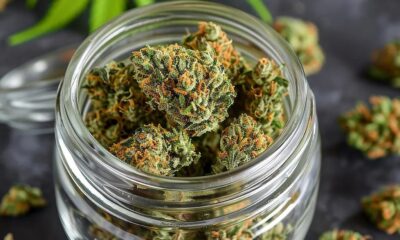

Watertown could create new rules for cannabis shops
-
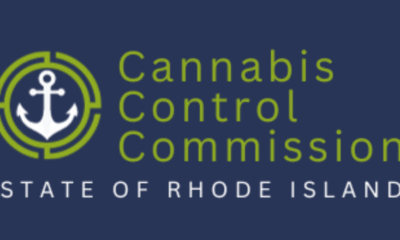

Rhode Island Opens Applications for 24 Adult-Use Dispensary Licenses
-
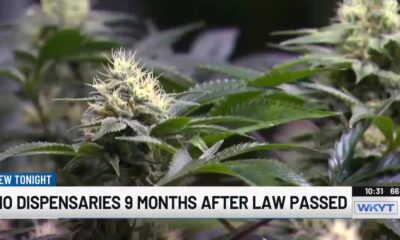

Kentucky still waiting on medical marijuana dispensaries 9 months after law passed
featured
Appellate Court Rules Delta-8, Delta-10 THC Prohibited in Maryland
Published
59 minutes agoon
September 15, 2025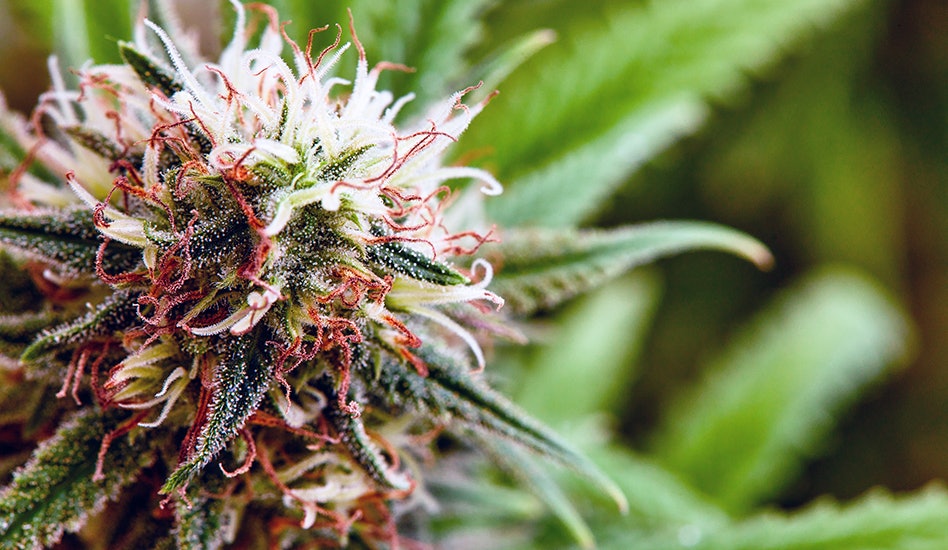
Delta-8 and delta-10 THC are illegal, and state law that prohibits businesses from selling hemp-derived products without a license is constitutional, the Appellate Court of Maryland ruled on Sept. 9.
The ruling reverses a lower court’s decision to grant a preliminary injunction to the Maryland Hemp Coalition and several hemp retailers, producers, farmers and consumers, who had challenged the state’s licensing requirement under the Cannabis Reform Act (CRA) that the Maryland General Assembly passed in 2023 to regulate an adult-use marketplace.
The now-lifted injunction had prevented state officials from enforcing the CRA’s licensing requirement for hemp-related businesses wishing to sell intoxicating products.
Although the state is now allowed to enforce the licensing requirements on hemp businesses, the Maryland Appellate Court ruled that intoxicating products containing synthetic hemp derivatives created in a chemical process remain illegal.
“While this case turns on the state’s ability to enforce the licensing requirement against hemp-derived psychoactive products, the parties have not addressed the legality of these products,” Appellate Judge Daniel A. Friedman wrote. “As we explain below, hemp-derived psychoactive products, so-called delta-8 and delta-10 THC, are now and have always been illegal in Maryland. That the prohibition has been the subject of lax enforcement does not make it legal.”
Furthermore, the judge pointed out that intoxicating products with hemp derivatives took off nationwide after the 2018 Farm Bill federally legalized the commercial cultivation of hemp because U.S. lawmakers did not regulate finished goods in that agricultural legislation.
“This may have contributed to businesses in Maryland and across the country selling these products,” Friedman wrote.
However, the judge explained, the 2018 Farm Bill did not prevent state governments from regulating their hemp marketplaces more stringently than the federal legislation. And, since the Maryland Department of Agriculture submitted Maryland’s state hemp plan to the U.S. Department of Agriculture in 2020, the 2018 Farm Bill does not preempt the state’s regulations on hemp, the court ruled.
The Maryland General Assembly adopted the state’s hemp cultivation program in 2019 and placed restrictions on intoxicating hemp-derived products.
“Based on the regulatory history of hemp and the products derived from it, the legal status of hemp-derived psychoactive products in Maryland prior to the enactment of the Cannabis Reform Act was clear,” Friedman wrote. “While these products may have proliferated during the period of regulatory uncertainty created by the 2018 federal Farm Bill, Maryland law prohibited the use or creation of hemp-derived psychoactive products.
“Significantly, the Cannabis Reform Act bans the sale of most hemp-derived psychoactive products. It does so by prohibiting products ‘not derived from naturally occurring biologically active chemical constituents.’ AB § 36-1102(c). Thus, because hemp-derived psychoactive products, including delta-8 and delta-10 THC, are derived from a chemical process … these products are prohibited.”
The Maryland Hemp Coalition, et al., also argued in the lawsuit that the CRA created an unconstitutional monopoly under Article 41 of the Maryland Declaration of Rights because of a common right exception. Maryland was the first state to adopt a constitutional anti-monopoly provision in 1776, according to the appellate court.
The court considered whether there was a common right to intoxicating hemp-derived products in both the broader cannabis market and the limited hemp market. The court determined there was not a common right in the broader market because of cannabis’s Schedule I federal status under the Controlled Substances Act. The court also determined Maryland’s agricultural hemp laws did not create a common right.
Under the monopoly argument, the court ruled Maryland Hemp Coalition did not attempt to define the relative market—including the size of the market, the products involved, and the size of the monopoly in relation to the market—which Friedman opined was a relevant matter of law.
The court considered several choices for a relevant market:
- All intoxicating products (hemp, marijuana, alcohol, other drugs)
- All products of the cannabis plant (hemp, marijuana, nonintoxicating, intoxicating, intended for human consumption, not intended for consumption)
- Only intoxicating cannabis products (hemp, marijuana)
- Only marijuana products
- Only hemp products
“The determination of the relevant market is neither theoretical nor academic,” Friedman wrote. “It affects whether a litigant can prove their Article 41 claims, it affects the type of analysis a court performs, and it affects whether an alleged monopoly satisfies an exception under Article 41. … In fact, we think the failure to identify the relevant market led to confusion here. That is, the Hemp Coalition’s arguments could apply to at least two markets—the broader cannabis market or the limited hemp-derived psychoactive products market.”
Given the ambiguity, the court ruled the Maryland Hemp Coalition cannot succeed on its monopoly argument that the CRA infringes on a common right.
Furthermore, the court determined that the CRA is permissible under Article 41 because the state’s cannabis regulations are “reasonably required” for the public interests, including consumer safety, youth protections, and social equity initiatives that remedy past discrimination.
“The Maryland General Assembly considered the dangers of both cannabis products generally and hemp-derived psychoactive products specifically and, in response, created a licensing requirement alongside product safety standards under the Cannabis Reform Act,” Friedman wrote. “We hold that the licensing requirement was reasonably required to protect the public health and fits within the public interest exception to Article 41.”
As a result of the court ruling, all Maryland businesses must first obtain a cannabis license before selling any intoxicating cannabinoid products—whether derived from marijuana or hemp.

Author: mscannabiz.com
MScannaBIZ for all you Mississippi Cannabis News and Information.
featured
Federal Marijuana Legalization Bill Deserves Lawmakers’ Support, Letter From ACLU And Other Groups Says
Published
3 hours agoon
September 15, 2025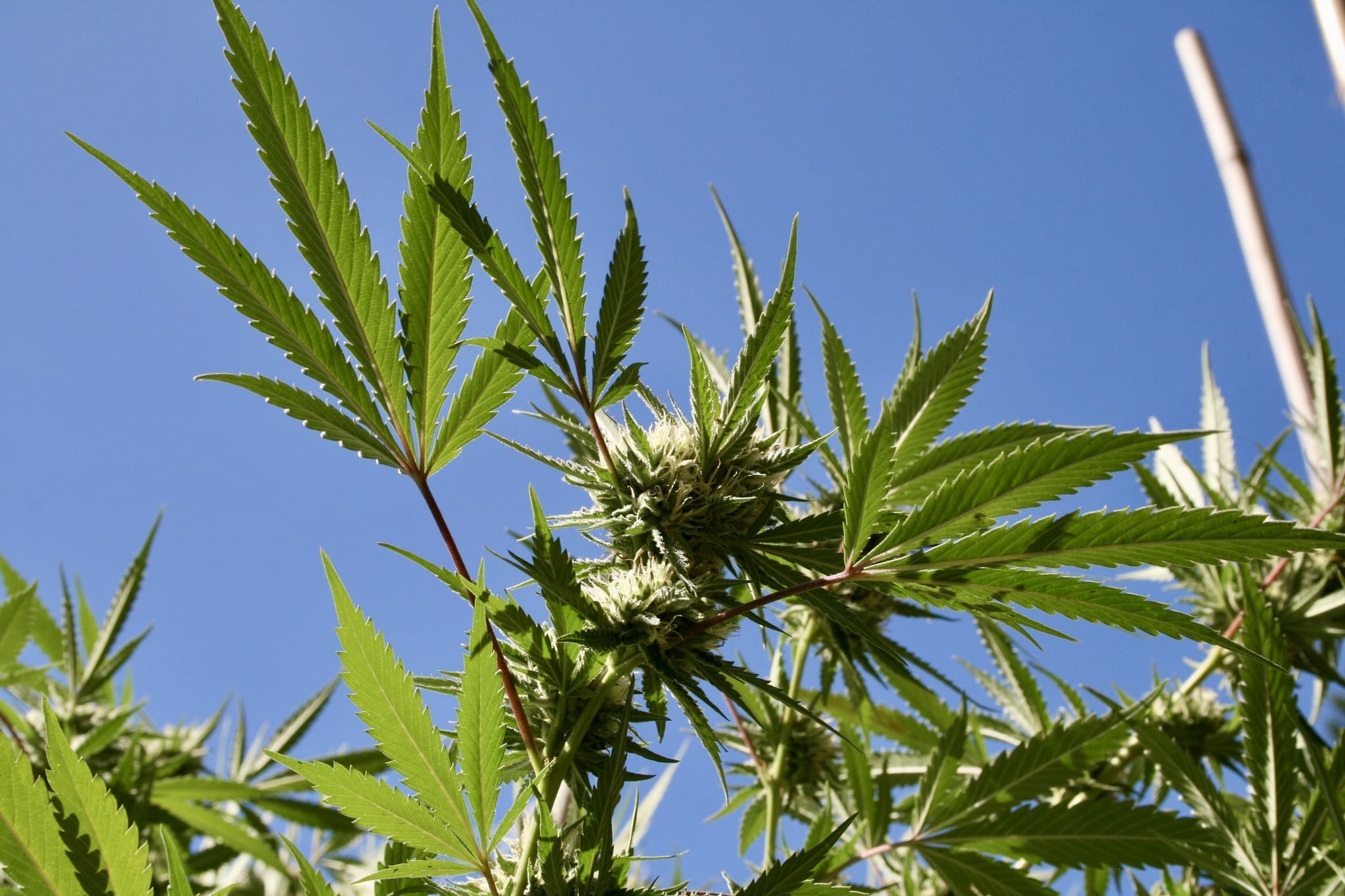
A coalition of drug policy reform and civil rights organizations sent letter urging members of the U.S. House of Representatives to cosponsor a recently filed bill to federally legalize marijuana and promote equity.
The letter, led by the Drug Policy Alliance (DPA), expresses support for the Marijuana Opportunity, Reinvestment and Expungement (MORE) Act, which was reintroduced by Rep. Jerrold Nadler (D-NY) and about three dozen cosponsors late last month.
This marks the fourth session in a row that Nadler has put forward the proposal. It passed the House twice under Democratic control while the sponsor served as chairman of the Judiciary Committee, but it did not advance last session with Republicans in the majority.
“The MORE Act is the leading comprehensive marijuana reform bill in the House that ends federal prohibition, addresses the collateral consequences of federal marijuana criminalization, and takes steps to ensure the regulated marketplace is diverse and inclusive,” the letter—which was also signed by groups such as the ACLU, National Association of Criminal Defense Lawyers, National Association of Social Workers, Service Employees International Union and Southern Poverty Law Center—says.
“For generations, marijuana’s placement on the [Controlled Substances Act, or CSA] has disproportionately inflicted harm upon communities of color and poor people,” the groups wrote.
They noted that the Trump administration is actively considering a proposal to simply reschedule cannabis, which they described as “a policy that would continue federal cannabis criminalization and its harm.”
With that reform pending, it’s “more important than ever for Congress to advance comprehensive legislation to deschedule marijuana from the CSA,” the letter says. “To be clear, as long as marijuana remains anywhere in the CSA, it will still be criminalized at the federal level.”
“Recent news reports have suggested that President Trump may move marijuana to Schedule III of the CSA. While this move would eliminate an unfair tax penalty on the marijuana industry and would be of symbolic importance by recognizing that marijuana has accepted medical use, little else would change. In fact, rescheduling marijuana from Schedule I to Schedule III of CSA will maintain the criminal penalties and collateral consequences that are in effect today. To fully address the conflict between state and federal laws, marijuana must be descheduled from the CSA.”
Other signatories on the letter include Cannabis Regulators of Color Coalition (CRCC), Doctors for Drug Policy Reform, JustLeadershipUSA, Last Prisoner Project (LPP), Law Enforcement Action Partnership (LEAP), Lawyers’ Committee for Civil Rights Under Law, Minority Cannabis Business Association (MCBA), Mission Green, NORML, Students for Sensible Drug Policy (SSDP), Supernova Women and more.
Here are details about the key provisions of the MORE Act:
- The bill would deschedule marijuana by removing it from the list of federally banned drugs under the CSA. However, it would not require states to legalize cannabis and would maintain a level of regulatory discretion up to states.
- Marijuana products would be subject to a federal excise tax, starting at five percent for the first two years after enactment and rising to eight percent by the fifth year of implementation.
- Nobody could be denied federal public benefits based solely on the use or possession of marijuana or past juvenile conviction for a cannabis offense. Federal agencies couldn’t use “past or present cannabis or marijuana use as criteria for granting, denying, or rescinding a security clearance.”
- Noncitizens could not be penalized under federal immigration laws for certain cannabis activity after the enactment of the legislation.
- The bill creates a process for expungements of non-violent federal marijuana convictions.
- Tax revenue from cannabis sales would be placed in a new “Opportunity Trust Fund.” Half of those tax dollars would support a “Community Reinvestment Grant Program” under the Justice Department, 10 percent would support substance misuse treatment programs, 40 percent would go to the federal Small Business Administration (SBA) to support implementation and a newly created equitable licensing grant program.
- The Community Reinvestment Grant Program would “fund eligible non-profit community organizations to provide a variety of services for individuals adversely impacted by the War on Drugs…to include job training, reentry services, legal aid for civil and criminal cases (including for expungement of cannabis convictions), among others.”
- The program would further support funding for substance misuse treatment for people from communities disproportionately impacted by drug criminalization. Those funds would be available for programs offering services to people with substance misuse disorders for any drug, not just cannabis.
- While the bill wouldn’t force states to adopt legalization, it would create incentives to promote equity. For example, SBA would facilitate a program to providing licensing grants to states and localities that have moved to expunge records for people with prior marijuana convictions or “taken steps to eliminate violations or other penalties for persons still under State or local criminal supervision for a cannabis-related offense or violation for conduct now lawful under State or local law.”
- The bill’s proposed Cannabis Restorative Opportunity Program would provide funds “for loans to assist small business concerns that are owned and controlled by individuals adversely impacted by the War on Drugs in eligible States and localities.”
- The comptroller general, in consultation with the head of the U.S. Department of Health and Human Services (HHS), would be required to carry out a study on the demographics of people who have faced federal marijuana convictions, “including information about the age, race, ethnicity, sex, and gender identity.”
- The departments of treasury, justice and the SBA would need to “issue or amend any rules, standard operating procedures, and other legal or policy guidance necessary to carry out implementation of the MORE Act” within one year of its enactment.
- Marijuana producers and importers would also need to obtain a federal permit. And they would be subject to a $1,000 per year federal tax as well for each premise they operate.
- The bill would impose certain packaging and labeling requirements.
- It also prescribes penalties for unlawful conduct such as illegal, unlicensed production or importation of cannabis products.
- The Treasury secretary would be required to carry out a study “on the characteristics of the cannabis industry, with recommendations to improve the regulation of the industry and related taxes.”
- The Bureau of Labor Statistics (BLS) would be required to “regularly compile, maintain, and make public data on the demographics” of marijuana business owners and workers.
- Workers in “safety sensitive” positions, such as those regulated by the Department of Transportation, could continue to be drug tested for THC and face penalties for unauthorized use. Federal workers would also continue to be subject to existing drug testing policies.
- References to “marijuana” or “marihuana” under federal statute would be changed to “cannabis.” It’s unclear if that would also apply to the title of the bill itself.
Getting a bill like the MORE Act through the GOP-controlled House and Senate is a tall task, however. And while Trump previously endorsed a Florida legalization ballot initiative, he’s given little indication he’d be willing to end prohibition altogether at the federal level.
A pending proposal to simply move cannabis from Schedule I to Schedule III under the CSA is still in flux—though the president did recently say a decision was imminent.
—
Marijuana Moment is tracking hundreds of cannabis, psychedelics and drug policy bills in state legislatures and Congress this year. Patreon supporters pledging at least $25/month get access to our interactive maps, charts and hearing calendar so they don’t miss any developments.![]()
Learn more about our marijuana bill tracker and become a supporter on Patreon to get access.
—
Numerous voices within Trump’s circles have expressed differing opinions on the reform.
Most recently, for example, Ben Carson, Trump’s former secretary of the Department of Housing and Urban Development (HUD), said a move to reschedule marijuana would play into plots to “destroy this country.”
Trump’s former press secretary Sean Spicer and his long-time advisor Roger Stone recently traded diverging takes on the prospect of the administration moving forward on marijuana rescheduling.
Stone separately made the case for reform in an op-ed for Marijuana Moment last month.
Retired boxer Mike Tyson, meanwhile, recently spoke about the need for federal marijuana rescheduling on a podcast hosted by the wife of White House Deputy Chief of Staff for Policy Stephen Miller—saying he’s expecting “good news” on the issue soon.
In June, the retired boxer also took to Fox News and delivered a message to the president, urging him to reschedule, and ultimately legalize, marijuana.
That interview came days after Tyson led a letter alongside other professional athletes and celebrities promoting cannabis reform that was sent to Trump, calling for rescheduling marijuana, expanding clemency and allowing licensed cannabis businesses to access the banking system.
Meanwhile, Trump’s former senior advisor Kellyanne Conway has been the “biggest champion” of marijuana rescheduling within the president’s “inner circle,” a GOP congressman recently told Marijuana Moment.
Photo courtesy of Brian Shamblen.

Author: mscannabiz.com
MScannaBIZ for all you Mississippi Cannabis News and Information.
featured
Rhode Island Opens Applications for 24 Adult-Use Dispensary Licenses
Published
4 hours agoon
September 15, 2025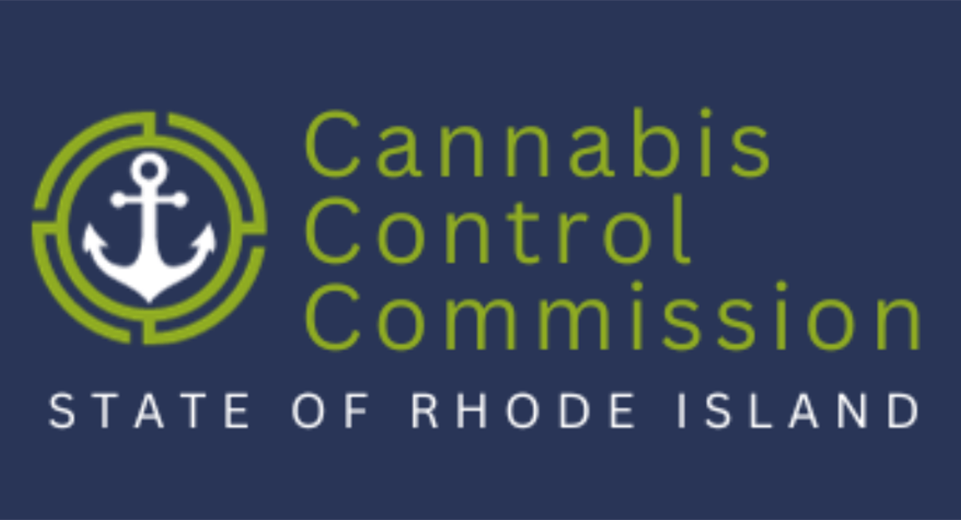
[PRESS RELEASE] – WARWICK, R.I., Sept. 12, 2025 – The Cannabis Control Commission (CCC) opened the application period for adult-use cannabis retail licenses, marking the beginning of the largest expansion to Rhode Island’s cannabis industry. The commission is authorized under the Rhode Island Cannabis Act to license up to 24 retail establishments statewide, divided equally across six geographic zones, making this announcement a defining moment in shaping the state’s cannabis marketplace.
“Today’s announcement represents years of work, collaboration and preparation to ensure Rhode Island has a cannabis marketplace that is safe, transparent, and equitable,” CCC Chairperson Kim Ahern said. “The release of this application and launch of our submission portal is not only about opening doors for businesses but about creating meaningful opportunities for Rhode Islanders while keeping public health and public safety at the center of everything we do.”
With only 24 retail licenses available statewide, the launch of the application process is expected to draw significant interest from prospective applicants. Together with the Social Equity Applicant Status Certification Portal, which opened in August, the application process reflects the CCC’s deliberate steps toward building a cannabis industry that prioritizes economic opportunity, equity and fairness in Rhode Island.
“Rhode Island’s cannabis market is poised for growth, and this application is helping us do exactly that,” Gov. Dan McKee said. “As we expand the cannabis industry here in the Ocean State, we’re opening the doors to new investment, new good-paying jobs, and new opportunities for our economy.”
Adult-use retail licenses will authorize sales of cannabis products to adults 21 and older. By releasing the application and opening the submission portal simultaneously, the commission is providing applicants with a transparent process while reinforcing its commitment to accountability and access.
“Today’s release of the adult-use retail license application reflects the commission’s commitment to equity and accountability,” Commissioner Layi Oduyingbo said. “This framework provides applicants with the information they need while reinforcing our responsibility to safeguard public health and consumer safety.”
Commissioner Robert Jacquard said, “The commission aims to make this application process as business-friendly as possible, while upholding standards that will protect public health.”
To ensure the process is fair and accessible, the commission and Cannabis Office will provide technical assistance resources and ongoing guidance for prospective applicants. Applications will be accepted until 4 p.m. on Dec. 29, 2025.
“This is a milestone that reflects the dedication and perseverance of so many people,” Cannabis Office Administrator Michelle Reddish said. “From lawmakers and advocates to community members and our dedicated staff, countless individuals have helped build the foundation for this moment. By publishing the application today, we are taking a historic step toward building a cannabis marketplace that serves consumers, supports equity and advances public health in Rhode Island.”
The adult-use retail license application is available on the commission’s website at www.ccc.ri.gov/auapp.

Author: mscannabiz.com
MScannaBIZ for all you Mississippi Cannabis News and Information.

Appellate Court Rules Delta-8, Delta-10 THC Prohibited in Maryland

Laws, public perception lagging risk, expert says

Federal Marijuana Legalization Bill Deserves Lawmakers’ Support, Letter From ACLU And Other Groups Says

Watertown could create new rules for cannabis shops

Rhode Island Opens Applications for 24 Adult-Use Dispensary Licenses

Kentucky still waiting on medical marijuana dispensaries 9 months after law passed

Can LSD Battle Anxiety? The Answer Is Yes, According to Science

Six hurt in shooting at marijuana event in SF's Bayview

Kentucky Medical Marijuana Dispensaries Should Be Stocked With Products Ready For Sale By Next Month, Top State Official Says

Deputies: 3,500 child sex abuse images, marijuana grow operation found in NC home raid

Regulators Ready to Enforce Cannabis Laws on Hemp THC Retailers in Maryland

California reaps over $250 million from 2nd Quarter cannabis sales

Meet the World’s First Cannabis Rugby Team: Crewmen 7’s Tackle Stigma Head-On

Texas Supreme Court Refuses To Take Up Marijuana Case Challenging State’s Rejection Of Local Decriminalization Law

California Passes Bill to Ban Intoxicating Hemp Products Outside Cannabis Market

Pending Federal Hemp Legislation Could Reshape The Legal Industry By Banning Some Products (Op-Ed)

Verano Proposes to Redomicile Parent Company From British Columbia to Nevada

8,000 cannabis plants seized from illegal Bradford grow-op

New York Lawmakers Schedule Psychedelics-Focused Hearing To Discuss ‘Medicinal Value And Risks’ Of Psilocybin

Curaleaf Opens Cannabis Dispensaries in Florida, Ohio

How to Protect Your Outdoor Cannabis Crops From Pests

Feds provide anti-cannabis group a platform to bash legalization (Newsletter: September 15, 2025)

Dozen arrested after south Mississippi bust for illegal sales to underage customers

The Toking Traveler: Why Amsterdam Weed Is Mostly Boof

Alert: Department of Cannabis Control updates data dashboards with full data for 2023

Connecticut Appoints The US’s First Cannabis Ombudsperson – Yes there is a pun in there and I’m Sure Erin Kirk Is Going To Hear It More Than Once!

5 best CBD creams of 2024 by Leafly

EU initiative begins bid to open access to psychedelic therapies
New Study Analyzes the Effects of THCV, CBD on Weight Loss

Free delta-9 gummies from Bay Smokes

Discover New York’s dankest cannabis brands [September 2024]

5 best autoflower seed banks of 2024 by Leafly

Press Release: CANNRA Calls for Farm Bill to Clarify Existing State Authority to Regulate Hemp Products

Curaleaf Start Process Of Getting Their Claws Into The UK’s National Health System – With Former MP (Resigned Today 30/5/24) As The Front Man

May 2024 Leafly HighLight: Pink Runtz strain

Local medical cannabis dispensary reacts to MSDH pulling Rapid Analytics License – WLBT

Recreational cannabis on ballot for third time in South Dakota

5 best THC drinks of 2024 by Leafly

Horn Lake denies cannabis dispensary request to allow sale of drug paraphernalia and Sunday sales | News

Mississippi city official pleads guilty to selling fake CBD products

6 best CBD gummies of 2024 by Leafly

Nevada CCB to Accept Applications for Cannabis Establishments in White Pine County – “Only one cultivation and one production license will be awarded in White Pine County”

The Daily Hit: October 2, 2024

5 best delta-9 THC gummies of 2024 by Leafly

Weekly Update: Monday, May 13, 2024 including, New Guide for Renewals & May Board meeting application deadline

PRESS RELEASE : Justice Department Submits Proposed Regulation to Reschedule Marijuana

5 best THCA flower of 2024 by Leafly

People In This State Googled ‘Medical Marijuana’ The Most, Study Shows
Trending
-

 California Cannabis Updates1 year ago
California Cannabis Updates1 year agoAlert: Department of Cannabis Control updates data dashboards with full data for 2023
-

 Breaking News1 year ago
Breaking News1 year agoConnecticut Appoints The US’s First Cannabis Ombudsperson – Yes there is a pun in there and I’m Sure Erin Kirk Is Going To Hear It More Than Once!
-

 best list1 year ago
best list1 year ago5 best CBD creams of 2024 by Leafly
-

 Business12 months ago
Business12 months agoEU initiative begins bid to open access to psychedelic therapies
-

 cbd1 year ago
cbd1 year agoNew Study Analyzes the Effects of THCV, CBD on Weight Loss
-

 Bay Smokes1 year ago
Bay Smokes1 year agoFree delta-9 gummies from Bay Smokes
-

 cannabis brands12 months ago
cannabis brands12 months agoDiscover New York’s dankest cannabis brands [September 2024]
-

 autoflower seeds12 months ago
autoflower seeds12 months ago5 best autoflower seed banks of 2024 by Leafly




